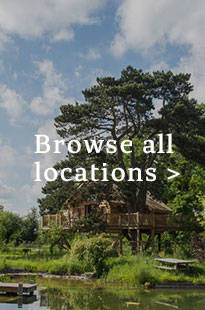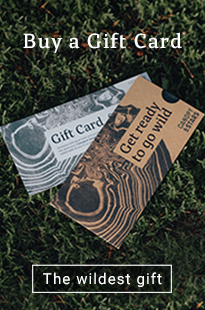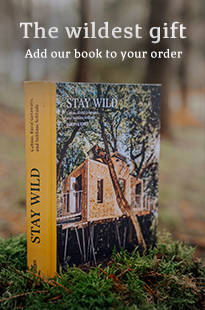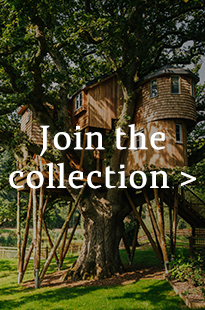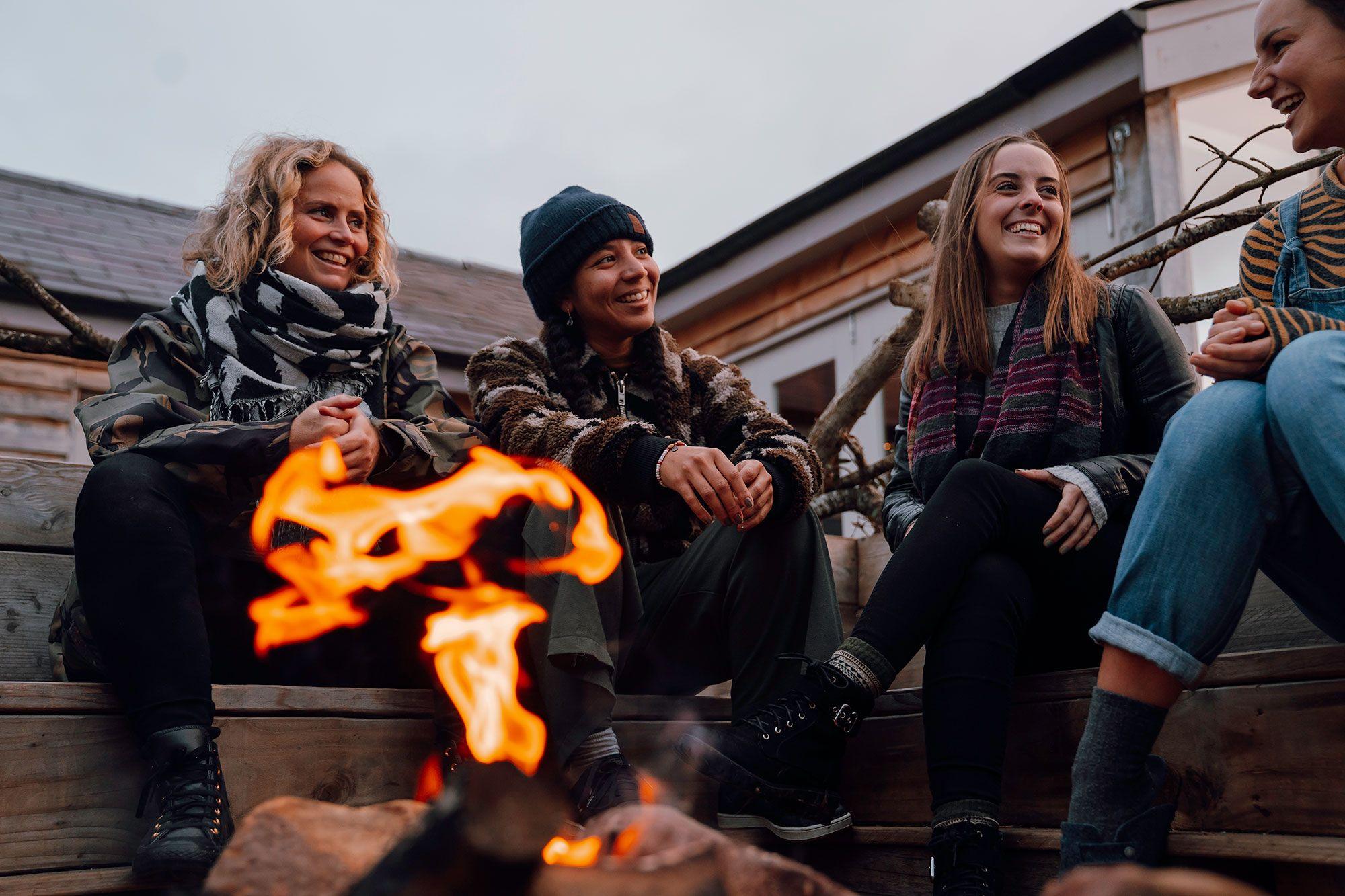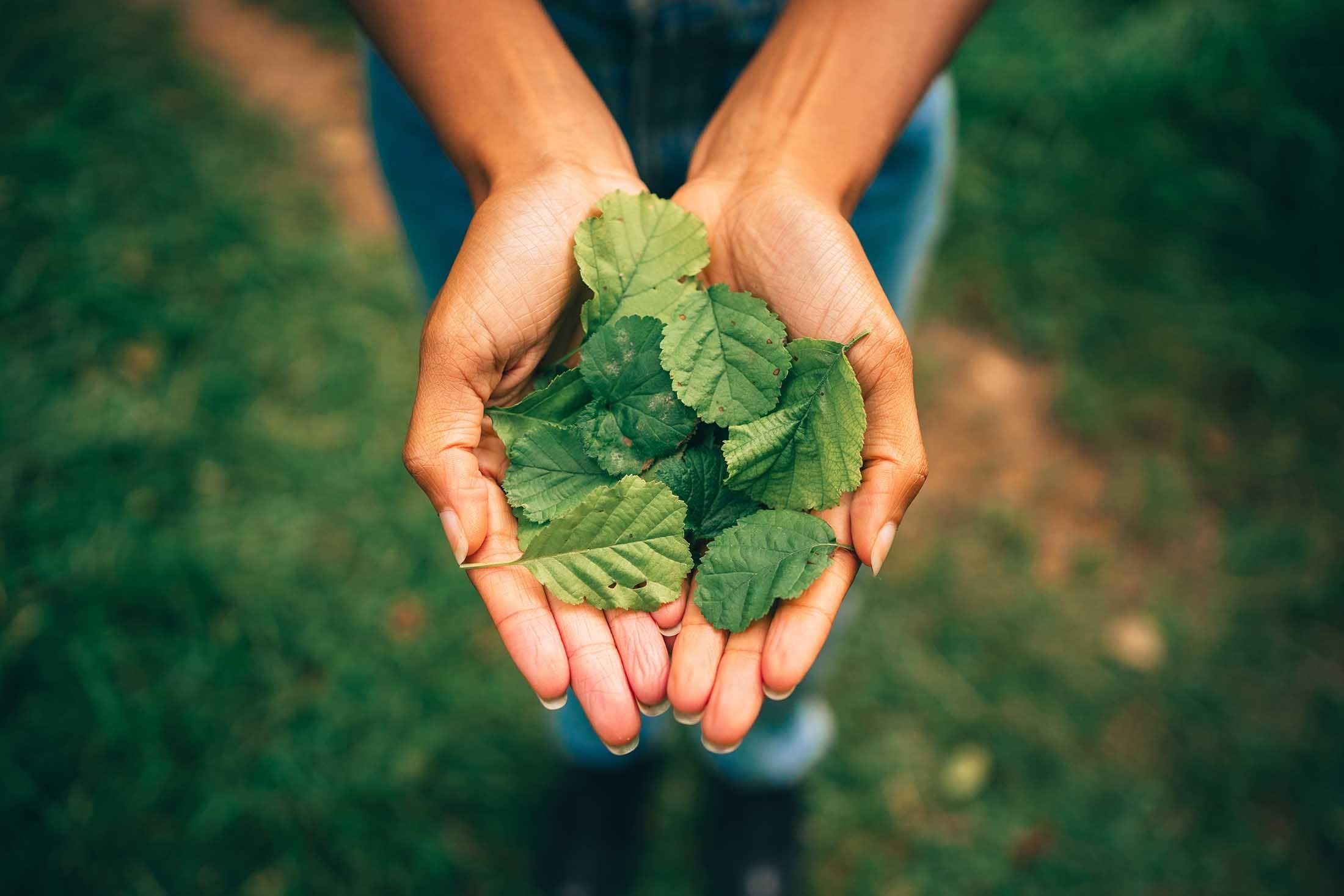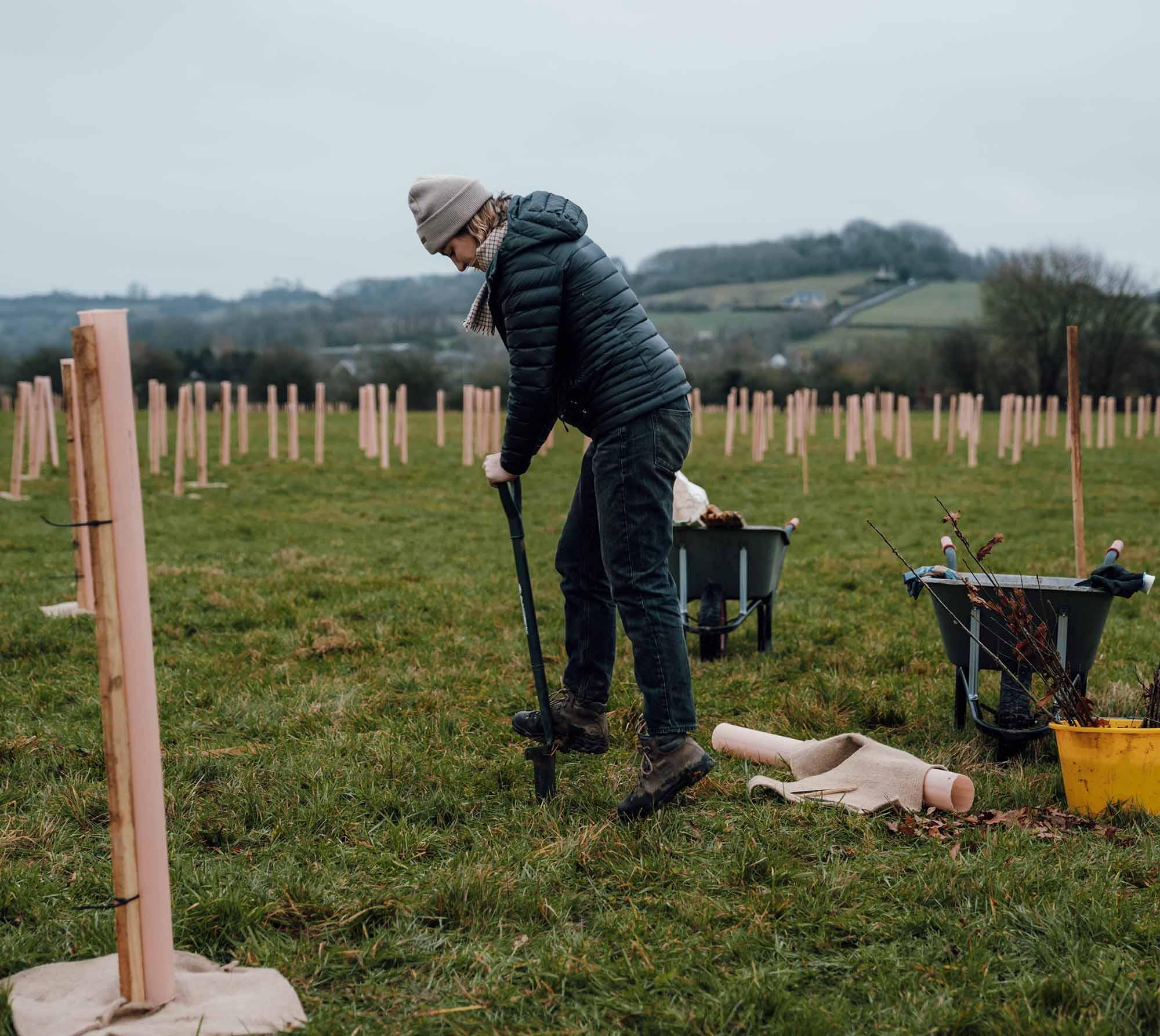- Location
- Glamping
Special occasions
- Stories
- Gift Cards
- About us
About Canopy & Stars
More from Canopy & Stars
More at Sawday's
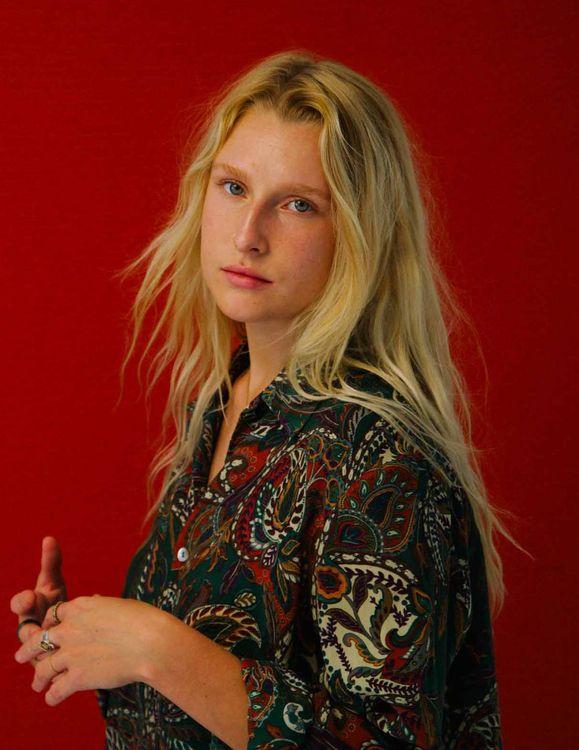
A Life More Wild - Episode 5
Billie Marten & John Graham
A nature walk with Billie Marten
Billie Marten is a singer songwriter who took inspiration from nature for her latest album Flora Fauna. We took a walk through Hackney Marshes to talk music, magpies and being pigeonholed by the media.
Where are we heading?
We're passing the Hackney Filter beds, which are essentially large, sunken rectangles that they used in the 1800s to sort of eradicate cholera, which I think is really clever. There's something about the sediment of the ground that kind of helps against the disease. They've now become so overgrown and tired and whimsical, that they're just enormous nature reserves, which I think is wonderful.
Are you here a lot?
I get to walk here every day. So coming here, it's, I mean, one of my best friends Katie, who does all the artwork and visuals for the music, we come here every week and walk two dogs that aren't ours. She's unbelievably good at finding these kind of magical nature, symbols within London. She's a magpie. She has a great spirit for appreciation, which I think is quite rare. We like to get in the river, which we're not supposed to do. Apparently, we're gonna gain extra fingers and toes. We actually shot most of the artwork in here and I didn't know that at the time, but now they put signs up. I covered myself in mud. Brushed my teeth with it!
How did you find making music in lockdown?
My other friend Lydia did the video for Garden of Eden, which was basically footage I was collecting without knowing in lockdown, just on my phone, of anything that I thought was beautiful. And she was doing the same. She was in Brussels at the time. And we'd just have these immense phone calls trying to put together this vision with no money and no cameras and nothing. It was a great, you know, little exercise in understanding that that's possible. And I think that was what lockdown was for loads of us. It's kind of just the realisation of what you do and don't need.
But you've always had an affinity for the countryside?
When I first started writing songs, we were living in and around Ripon and there was not a lot else to write about. So it was really the only thing I could try and note down. And I was listening to a lot of Nick Drake and he's got some beautiful lyrics about colour and light and nature and he was very good at crossing over that melancholic feeling with nature. I just really resonated with that massively like how my brain worked, and what I thought every day. I just started writing about my surroundings and thinking back to myself, which is kind of what every writer does.
She sings Aquarium, the last track on the album
And how does nature influence your writing?
For me nature is kind of a sign of... communication. It evokes those kind of pent up emotions and they're usually not negative, but it's, it's catharsis and it's comfort in blue, which I just really resonated with at that age. I was 13/14 and feeling a little weird and trying to, you know, express my views to the world and desperately failing. So, I kind of accidentally fell into music through this YouTube channel called On't Sofa, which is a great way for unsigned artists to get something professionally recorded on the internet. But it was purely accidental, and something bad happened with that video. People from London found it! And then they started talking to me.
So that was when you saw music as a career?
It was months and months, if not years of conversation and I signed a development deal when I was 14. That was a couple years of basically experimenting musically and meeting people in the industry and writing and trying out production and doing little regional gigs. Then I signed with Chess Club Records, who are off the back of Sony, when I was 16. And then I put out my first record, Writing of Blues and Yellows, when I was 17.
How did the industry treat you early on?
There was quite a story sort of painting me as this whimsical waiflike tree nymph thing, which was not true. But that's how people like to describe women in music. They have to be kind of mythical and mysterious, and, you know, tiny, like bugs. That's the way people describe women in books as well. And to be fair to them, I was incredibly young, and vulnerable, and quiet. So that's fair, but maybe they went a bit too far. Because nature... you are vulnerable in it, but it doesn't mean that you're a vulnerable character.
Will you keep writing songs about nature?
It's always been attached to my writing and it always will, so I'm really glad that I've got that tag because not many people get that and that's nice. And you can evolve still. You're not necessarily tied to a specific character. In the past, I have written a lot about mental health and I have SAD disorder, depression, anxiety, and all that stuff. And if you mention that even once you then become, you know, poster girl for that, which I'm not. Whereas with nature, I'm glad to be a poster girl. It's ever evolving, as are you. And it's there for you all the time. It's completely non judgmental, you could be anyone in it, and it's up to you.
Tell us about this next song, Garden of Eden...
This one's about a particularly frustrating time for me. Living in London, it was getting increasingly difficult to find those aspects of calm and freedom in nature. And it felt to me like everybody was obsessed with the idea of competition. And that is something that a plant does to stay alive and become alive and it was just an idea I had - thinking about all of us growing up in a greenhouse and not having space or light or water to move and live. We're just constantly obsessed with the idea of being the tallest flower or the ripe tomato and then in doing that, we're not actually doing the living and the feeling part. So I wanted to tie all of that into appreciation for living, which is what the chorus says, and understanding that once we have the things that we need, we can live as normal... be appreciative of it.
She sings Garden of Eden
We've walked on a bit. Where are we now?
This is the river with some amazing kingfishers, maybe we'll get one. Also some really majestic herons. They're my favourite. It's kind of the end of London. Everythings very calm and still but this has ultimately come from the Thames, which is why we're not supposed to go in, but today it's beautiful and clear. This is actually our swim spot.
So have you got any tips for aspiring songwriters?
Pick a subject that you're really into... write loads of songs about it and you can talk about it for the rest of your life.
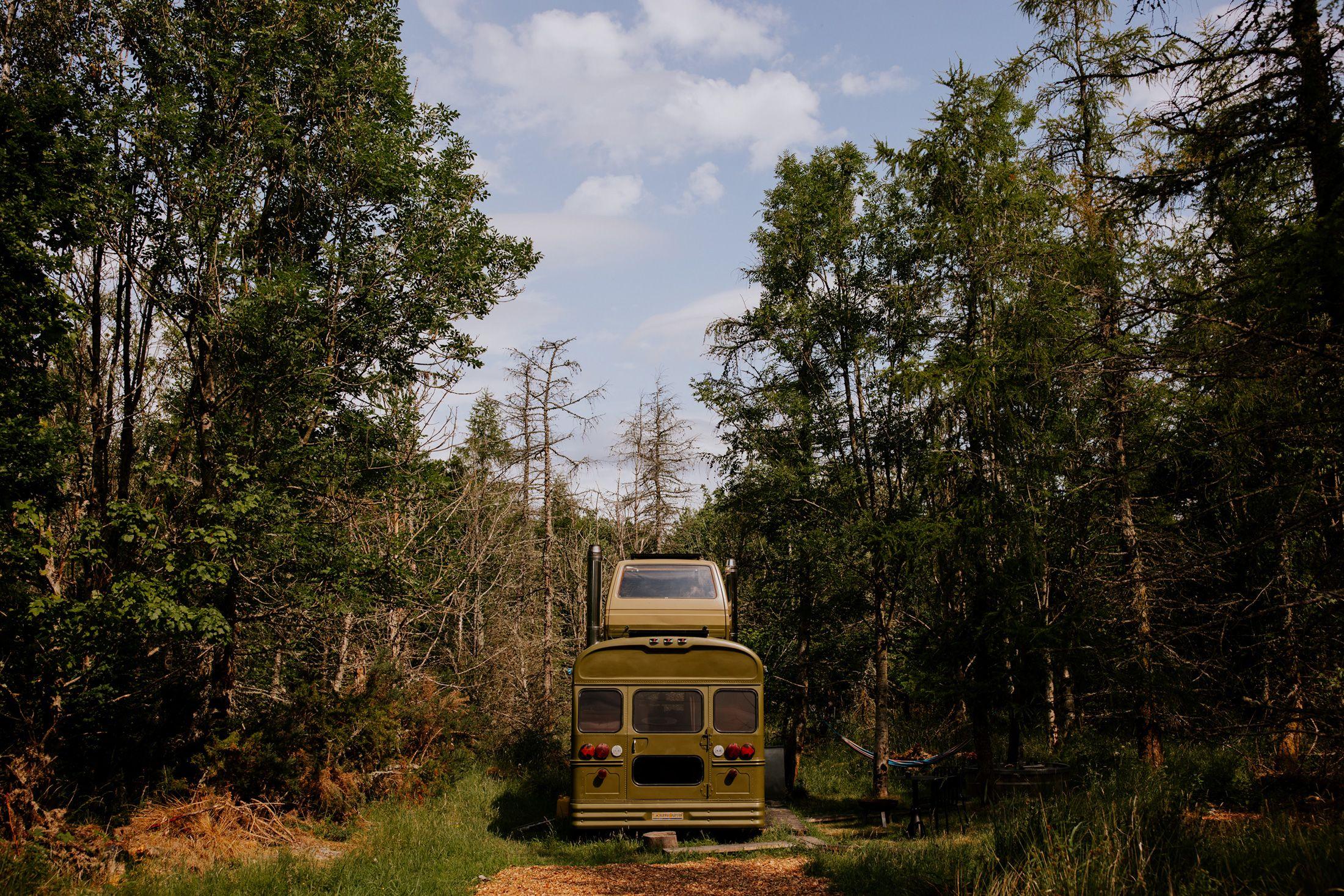
Building with buses and the luxury of simplicity with John from Hinterlandes
Who knows where inspiration comes from? A few random connections in your mind, a timely word or a chance encounter can lead you off on a path you'd never have imagined. Few of us though, however, inspired, would have come up with John and Hannah's incredible fusion of a camper van and a school bus that they call Hinterlandes. We spoke to John about why he started out on his incredible project and what it gives the people who stay.
Give us an idea of where hinterlands comes from, what's the idea that starts it all off?
So we're based in the northwest of the Lake District in a valley called the Lorton Valley, It's a bit quieter than the rest of the Lake District, but probably even more beautiful. You wouldn't normally be able to stay at the top of a mountain down near the lake, so I had the idea of making these cabins on trailers and they could move to different locations.
Where are they at the moment?
So we've got the larger cabin down by a river in some woods, we've got the bus halfway up a fell and we've got the little cabin literally at the top of a fell looking down the valley. So the guests of the cabin at the moment will be getting the best view but we'll have to move down shortly.
Are all the locations really remote?
You're not on a farm. You're not close to any buildings, not close to anybody else's house and you're not close to another cabin. The only person will be like a stray walker or something.
Describe, if you can, the setup of the bus...
So the bus is a short American school bus and then we've got half a VW camper on the top, which forms a sort of bedroom area. So the two were welded together. Basically you've got your living space downstairs and then there's a bedroom upstairs and there's a little winch when you're downstairs so you can winch the ladder back up. The ladder took a lot of thought. There's lots of little pulleys and cables and things to get that ladder to go up and down. In the living space downstairs is a little shower area, which we tried to give it the feel of like, you know as if you're home really. So it's clad in marble, there's a little compost loo with a little sink, and a little bench surface. There's two wood burning stoves. One of those is like an Aga that you can cook off as well. It's gonna be the only boss with an argument.
Where did you get it all from?
A lot of the materials we used were reclaimed. So we've got door handles from a hotel in London, We've got old bar doors on the shower in the bathroom. We've got cupboard doors from... I think it's the Victoria and Albert Museum. Lots of little reclaimed things, brass bulkhead lights off ships.
So what do you think gets the biggest reaction from the people who stay there? The location or the bus?
I think it's part of the whole thing, really. I mean, all the accommodation, generally speaking, you have to have a bit of a walk to it. So we generally say to people, you know, pack light-ish, because there is a little bit of a walk. So obviously, walking up, people get an idea about the space and the view, and I guess there's a bit of a buildup as opposed to somewhere you'd just drive up to, especially with the little cabin on the top. It's a good 20 minute hike up there with backpacks. So, in particular with that one at the moment, there's a sort of sense of achievement, and then you arrive at your accommodation and the views are insane. So yeah, I think it's just a balance between the two.
So what was the thinking behind doing those three spaces, rather than say, a normal b&b?
With moving them about, you know, you can be up near a waterfall, you can be down by the side of a lake, you can be at the top of a fell. So you can get to these locations that you wouldn't normally be able to and can stay in relative luxury. I mean, I don't really like using that term, because they're not luxurious, but they've got everything you need. There's no TVs or anything like that, because you want to sort of be close to nature. And we've got an Aga, we've got wood burning stoves, they're totally off grid. That whole feel, we didn't want to lose that with too many niceties. I think I was reading it in one of the books, but luxury is sort of the simple things really. You kind of realise what the luxuries are when you strip your life back a little bit. So luxuries become chopping wood to make heat and freshwater, or a fridge to chill food. Those things, when you're in that exposed environment, become luxurious. If you're in a cabin, or even the bus, those simple things like when it's cold, it's not just a case of flipping a button, you've got to chop the wood and light the fire. And when that's hard, that becomes a luxury, if you know what I mean.
Do you live that kind of life yourself?
When I was first working on the bus, we rented our house out for a year. And we stayed in the bus. And we still talk about how that was the best period of our life today. Because living in the bus in the middle of nowhere... the whole process just slows your life down. So we hardly had anything, just the absolute basics because there isn't a huge amount of space. We cooked everything from scratch and everything just slowed down. Life was a lot calmer. We played board games, built a little vegetable patch. It was just like the good life I guess. I mean, it was just just being in that environment, you just naturally slow down. Whereas at home, you've got a computer on the go all the time, phones going off, people outside people knocking at the door. There's a sort of constant buzz in the background at home for us. But when we were there, everything just filtered out and that remoteness, being able to get away from everything, is just brilliant.
Does everyone love that sense of disconnection?
Yeah, it's a total escape. If you didn't want to see another person for you know, the week that you were there, you wouldn't see another person. But some people come on their own to stay... they get a bit sort of, a bit nervous sometimes just that there's no one there but you know, we travel about in the little buggy and things to do jobs and sometimes they say it's not to see somebody other than sheep and cows!
So you get lots of different types of guests?
There's people that are very active and they bring bikes and paddleboards and I don't think they spend much time at the cabin. But other people will go to the cabin, or the bus and that's them. They bring a lot of books, they want to read, relax or finish off a book they're writing and they just want some peace to just do that. That was actually just a local person from 10 minutes away that wanted somewhere to go and finish a book and they just wanted solitude. You know, it's a mix of people for a lot of different reasons, but I think the locations offer quite a lot, you know, quite a lot of freedom for people.

